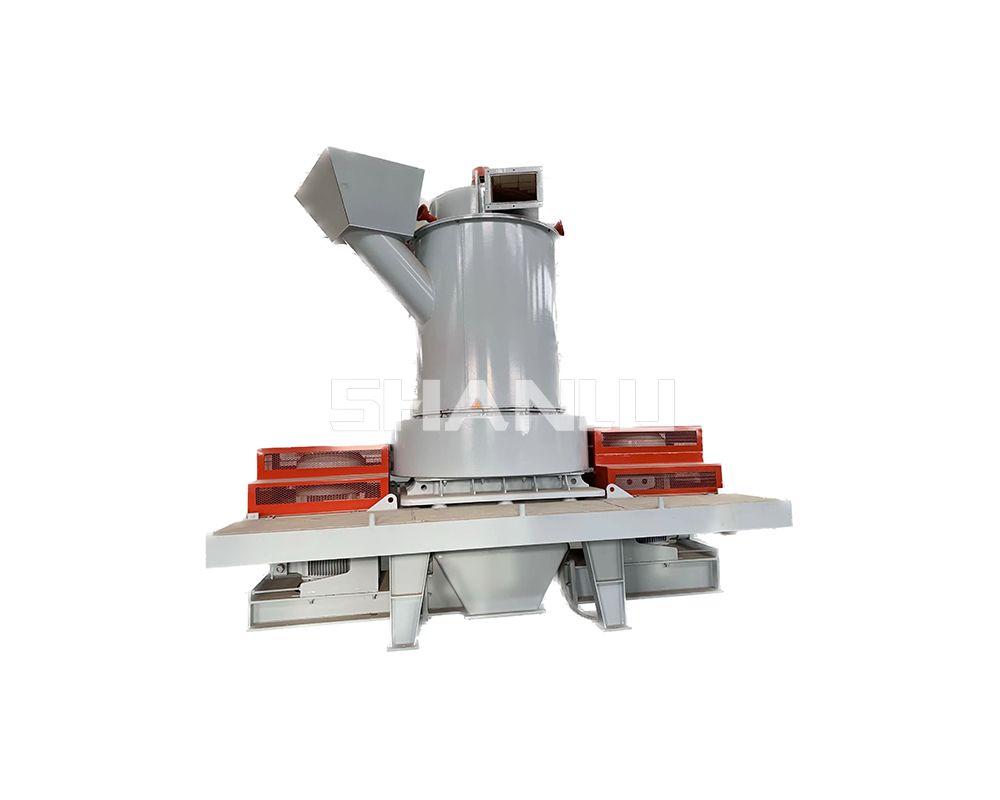Vertical sand making machine is an efficient fine crushing equipment widely
used in the fields of artificial sand making and stone shaping. It is mainly
used for fine crushing and shaping materials with medium hardness or above, and
is particularly suitable for processing various materials such as quartz sand,
granite, basalt, limestone, iron ore, etc. It occupies an important position in
industries such as sand and gravel aggregates, construction sand, refractory
materials, and high-purity quartz sand due to its compact structure, low energy
consumption, good discharge particle size, and easy operation. It is one of the
indispensable key equipment in modern mechanism sand production lines.

The working principle of a vertical sand making machine is mainly to use a
high-speed rotating rotor to generate strong centrifugal force on the animal
material, which is thrown towards the wear-resistant lining plate or material
layer in the crushing chamber, so that it is quickly crushed into the desired
particle size under the comprehensive action of multiple forces such as impact,
grinding, and shearing. Some materials form their own protective layer after
multiple impacts, reducing wear on the equipment lining and extending its
service life. At the same time, the collision between materials during the
crushing process effectively improves the particle size of the finished product,
making it more regular and uniform, meeting the requirements of high-grade
building sand and gravel.
In terms of structure, vertical sand making machines usually include feeding
ports, rotor assemblies, crushing chambers, discharge ports, transmission
systems, and bases. The rotor is the core component of the equipment, consisting
of the main shaft, hammer head, striking plate or impeller, etc. The electric
motor drives the main shaft to rotate at high speed through a belt, causing the
rotor to generate high linear velocity and accelerating the material entering
the crushing chamber, achieving efficient crushing and shaping effects. The
advanced models are also equipped with hydraulic opening devices, which
facilitate maintenance personnel to inspect and replace internal components,
improving the convenience and safety of equipment maintenance.
The performance advantages of vertical sand making machines are mainly
reflected in the following aspects. Firstly, the discharge particle size can be
adjusted, and by adjusting the rotor speed, material circulation volume, and
crushing chamber structure, it can flexibly meet different production needs.
Secondly, the plastic surgery effect is significant, with a cube shaped product
and low needle like content, suitable for the production of high standard sand
and gravel materials. In addition, the equipment runs smoothly, with low noise
and less dust, making it suitable for places with high environmental
requirements. Some models adopt intelligent control systems, which can achieve
remote monitoring, fault diagnosis, automatic lubrication and other functions,
improving the automation and intelligence level of the entire production
line.
In terms of application scope, vertical sand making machines are not only
suitable for the production of machine-made sand, but also widely used in
industries such as mining, metallurgy, building materials, highways, water
conservancy, and chemical engineering. They have significant advantages in the
production of high-quality quartz sand, high-grade machine-made sand, and
high-end building aggregates. For the processing of high-purity materials such
as quartz sand, vertical sand making machines can effectively reduce impurities
by optimizing the rotor structure and using wear-resistant ceramic or alloy
lining plates, improve product purity, and meet the sand needs of precision
industries such as electronics and photovoltaics.
In terms of green environmental protection, the vertical sand making machine
is equipped with a dust removal system, a water curtain dust suppression system,
or a closed crushing chamber design, which effectively controls dust and meets
the national requirements for green mining and environmentally friendly
production. At the same time, the equipment has low energy consumption, with a
unit capacity energy consumption reduction of about 20% -30% compared to
traditional sand making machines, greatly reducing operating costs.
In summary, the vertical sand making machine is an advanced equipment that
combines multiple advantages such as efficient crushing, shaping, beautifying
particle size, and energy conservation and environmental protection. It can not
only improve the quality and yield of mechanism sand, but also meet the diverse
requirements of sand and gravel performance in different application fields. It
is one of the core equipment in modern production lines such as quartz sand,
building aggregates, and high-purity materials. With the continuous expansion of
demand in the mechanism sand market and the increasingly strict environmental
policies, vertical sand making machines will play an increasingly important role
in the future sand and gravel processing industry.